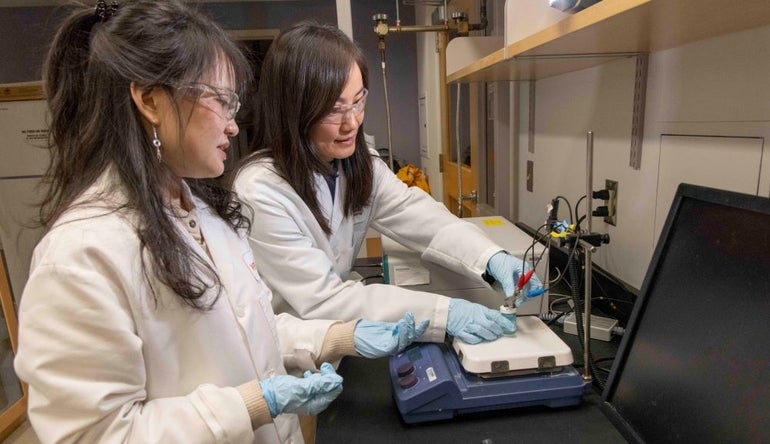A team of researchers at Worcester Polytechnic Institute hope to develop a biosensor doctors and nurses can use to detect a dangerous gastrointestinal infection.
The infection, Clostridium difficile (C. diff), is the most common infectious cause of diarrhea in hospital patients. The bacteria can also cause nausea, dehydration, weight loss, colitis and kidney failure.
The infection becomes harder to cure the longer treatment is delayed. According to the Centers for Disease Control, out of 500,000 annual U.S. cases, more than 29,000 infected with C. diff die within 30 days of diagnosis, and the bacteria can cause nearly $5 billion in healthcare costs.
To combat the sometimes fatal condition, the WPI team wants to implement its sensor in a handheld device to be used in doctor’s office and nursing homes to provide results in minutes, avoiding the need to send samples to commercial labs.
The bacteria is usually detected by culturing a stool sample, but that test has a high rate of false negatives and requires specialized equipment and expertise.
Beginning in 2012, Hong Susan Zhou, WPI professor of chemical engineering and the program’s principal investigator, began looking for a quicker and more effective way to detect C. diff.
That resulted in a microwave-size biosensor prototype, which Zhou built and demonstrated in 2015. Now, with a $350,000 grant from the National Science Foundation funding the program, Zhou and assistant professor mechanical engineering Yuxiang Liu want to shrink the device to make it portable and more sensitive.
The biosensor is equipped with an electrode with antibodies attached. When C. diff bacteria bind to the antibodies, they trigger and electrical charge that signals the presence of an infection.
This process can take just a few minutes, rather than the one-to-two-day procedure of sending samples to labs.
The team hopes the biosensor can be adapted to test for other types of infectious bacteria, including E. coli, salmonella, meningitis, and even possibly cancer biomarkers.

